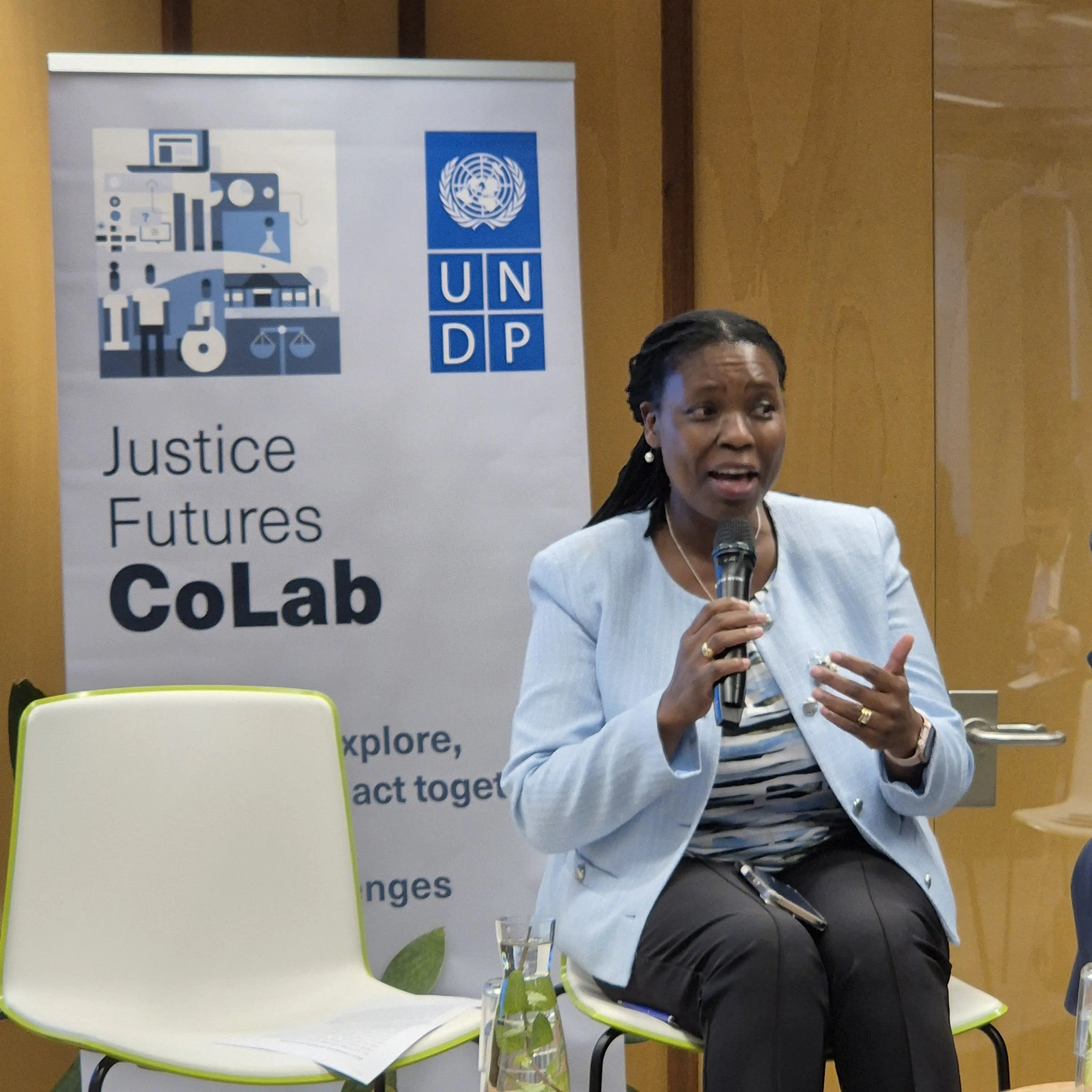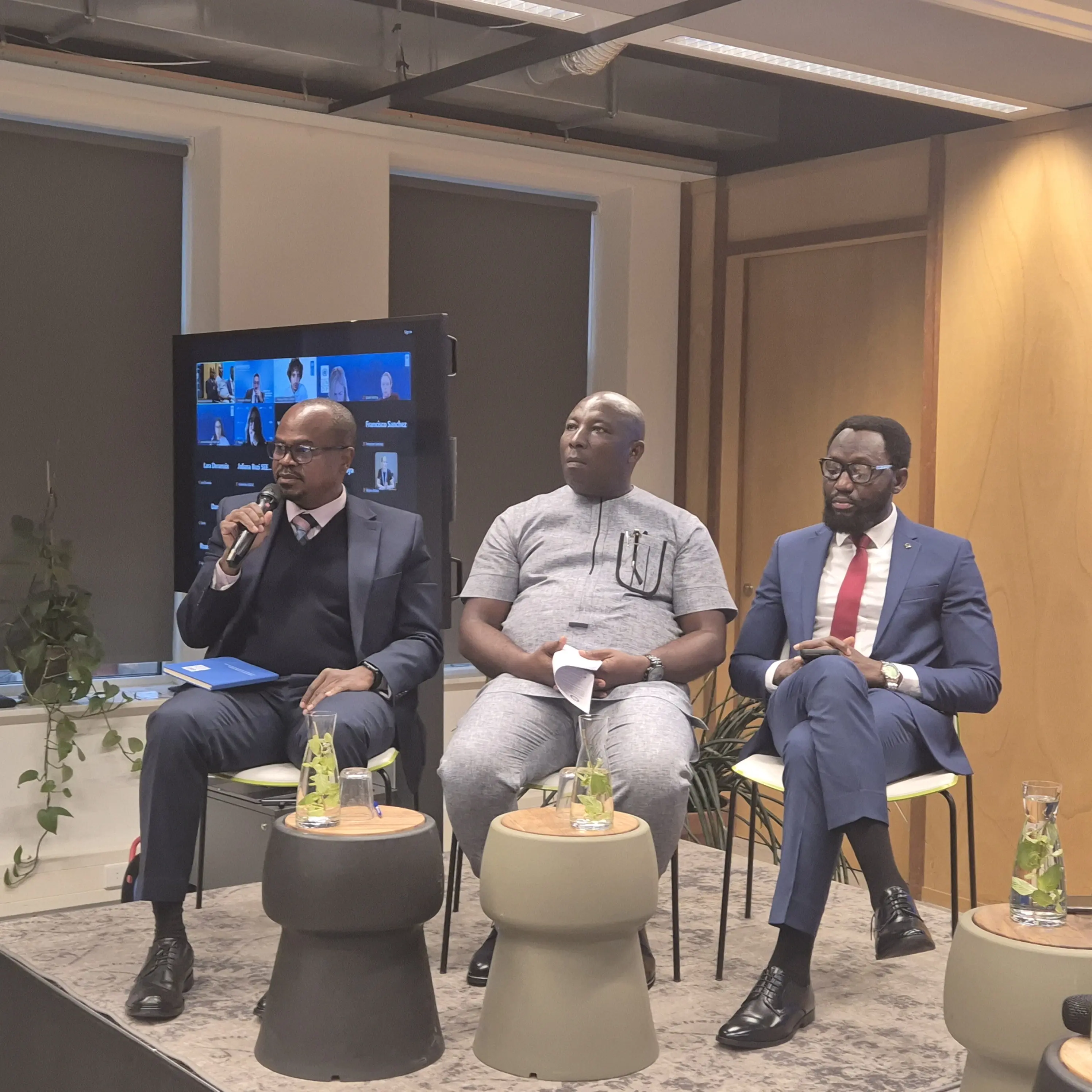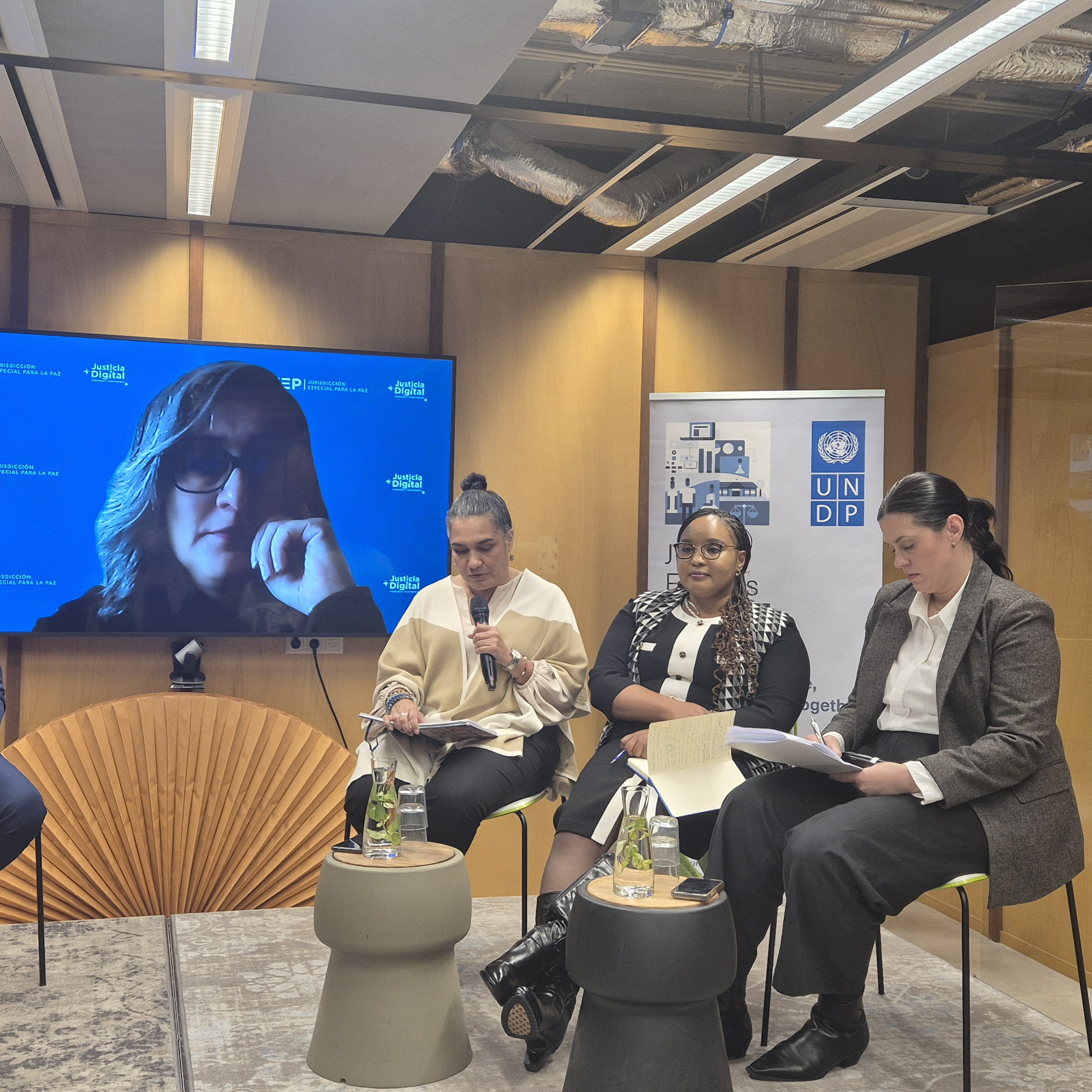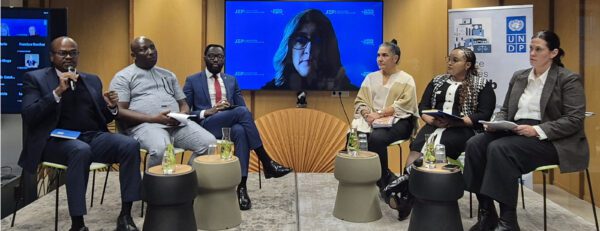What would a justice system that puts people in the centre look like?
The new people-centred justice programming guide from the United Nations Development Programme (UNDP) provides an answer to this very question. Last month, we hosted them at the Hub for our second edition of Frontline Talks to hear about the guide, and to gain vital insights from country-level experts in Sierra Leone, Kenya, and Colombia.

Programming Guide on People-Centred Justice and Security
The UNDP guide on People-Centred Justice and Security provides a practical toolkit to those on the ground for implementing people-centred justice and security interventions. Far from a theoretical textbook, the guide is based on seven core design principles – including the need to start with people’s justice and security needs and design with people, not for them – and includes practical steps for implementation, adaptation and scaling. It’s envisioned as a ‘one stop shop’ for local programming teams on how to design and deliver interventions that are systems-oriented, politically informed, adaptive and integrated, through a step-by-step process and without excessive jargon.
The guide is underpinned by UNDP’s policy framework which sees people’s justice and security needs as inherently intertwined. As UNDP Senior Justice Advisor Leanne McKay points out;
“Because people experience justice and security together, not in silos, people-centred programming should reflect that reality, too.”
The guide also recognises the disparate and challenging contexts across the world, allowing for flexibility in application through adaptive programming.
People Centred Justice in Practice
Field-level results from Colombia, Kenya and Sierra Leone – supported through the Justice Action Coalition Catalytic Fund, with contributions from the governments of the Netherlands and Germany – demonstrate the tangible impact of people-centred approach. We discovered how people-centred justice is being enacted in diverse political and social contexts and gathered valuable insights for those looking to bring justice closer to the people.

Kenya
In Kenya, small claims courts were set up to handle civil commercial matters with a financial cap, now up and running in most of Kenyan counties. With UNDP support, the courts have been digitised, enabling users, especially women business owners, to access services through a new mobile app. Through this app, people can view the rulings, verify court orders and monitor payment status. This digital breakthrough has brought justice closer to people, particularly in remote areas or small traders who would otherwise have to spend a lot of time and money for judicial proceedings. In addition, the small claims courts have boosted civic space in Kenya. Committees were established, bringing together state actors, business owners and community activists, raising legal awareness and creating a platform where small traders – mostly women – can raise their concerns and push for accountability.
Colombia
In Colombia, the Special Jurisdiction for Peace (SJP or JEP in Spanish) is a transitional justice mechanism which aims to deliver justice to individuals, families and communities affected by the decades of conflict and violence. It respects ancestral traditions, focusing on the most representative crimes committed during the conflict as well as the most affected regions. To sustain a lasting peace, the SJP aims for:
- Participation of victims at all judicial stages, facilitated through inclusive hearings and regular contact via SJP provincial offices.
- Empowerment of survivors. “It is important that they receive information and are recognised as key actors.”
- Reparations. “Victims must feel repaired both in money but also as social actors whose voices are heard.”
Additionally, the JEP has established a legal aid network for victims in partnership with UNDP and more than 30 civil society organisations, providing culturally sensitive judicial and psychosocial support.
Sierra Leone
In Sierra Leone, mobile legal clinics and community paralegals are helping people in remote rural areas resolve disputes locally and affordably. Over 2,000 benefitted, including 900 women. “Going through formal justice system can be expensive and intimidating, so people get to experience justice in their communities,” said Mr. Shahid M Korjie, Coordinator of the Justice Sector Coordination Office. “For example, paralegals help women get their land back or support divorcing parents to decide on custody.”
“Civil society in Sierra Leone is also practicing public interest activism, promoting awareness and access to education and basic services”, said Mr. Jeremy B. Simbo, Acting Executive Director, Centre for Accountability and Rule of Law. This bottom-up process ensures people have agency to identify issues that matter most to them and have knowledge and resources to achieve lasting solutions.

Key Takeaways
- People must be involved in every stage of the justice process.
- A lasting peace is contingent on victims being recognised as key actors, receiving reparations, and having a sayin how systems are designed going forward.
- Practical improvements in people’s access to justice can trigger a mindset change and open new civic spaces for people’s engagement.
- Civil society efforts need to be focus on issues which matter most to citizens, not the other way around.
UNDP’s full people-centred justice programming guide will be released shortly. You can find the summary here.
Next time, be in the room where it happened: discover and sign up for more insightful events happening at the Hub on our events calendar
